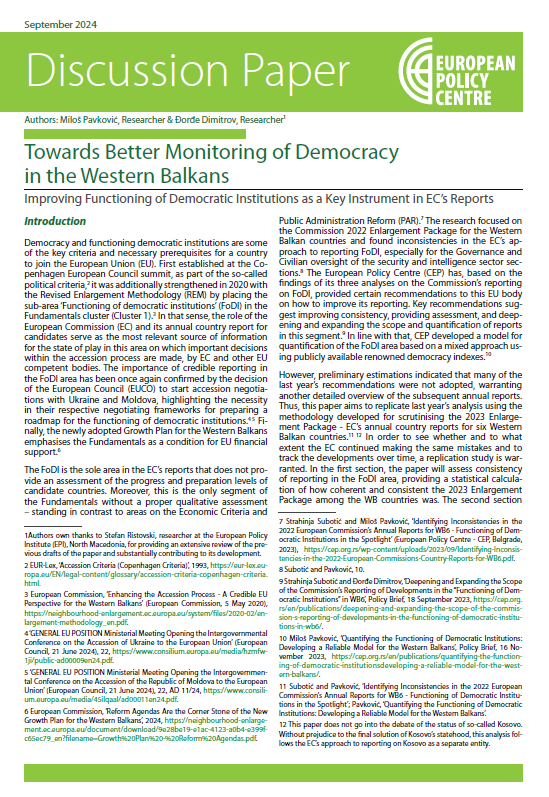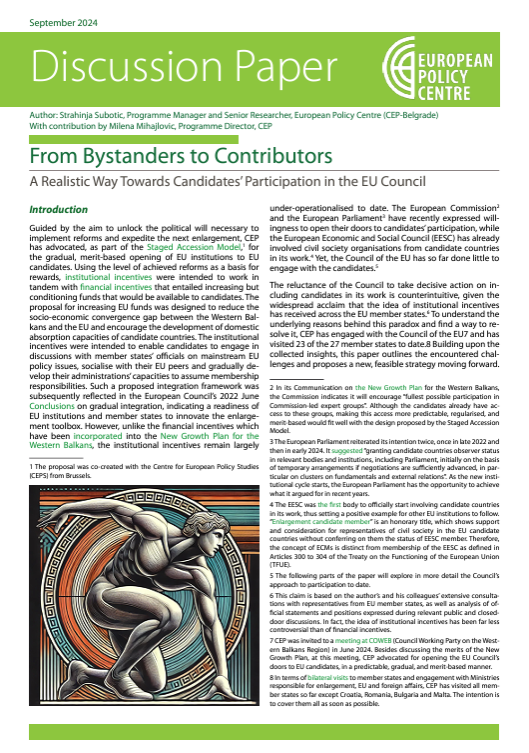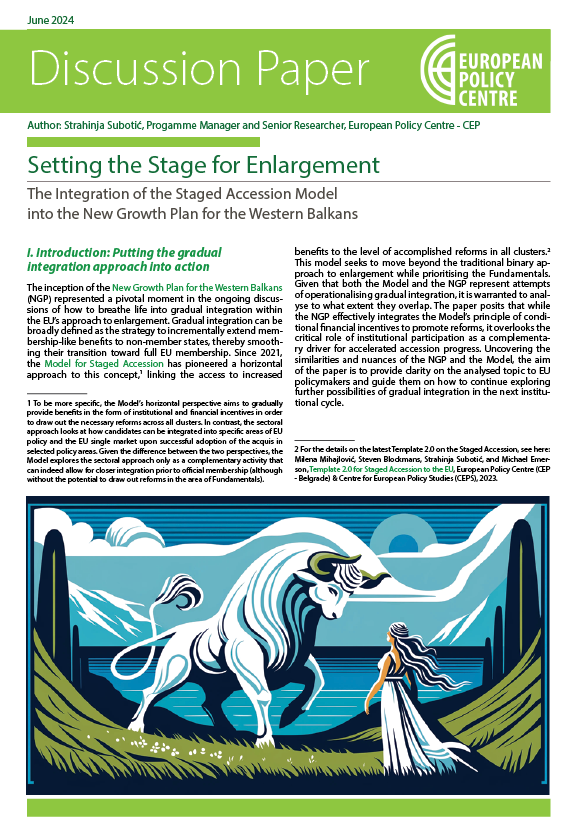Headquarters: Svetog Nauma 7, 11000
Office address: Đorđa Vajferta 13, 11000
Phone:: +381 11 4529 323
Since the last expansion of the European Union in 2013, the enlargement policy ceased to be a priority for the Union. This happened despite the civil society organisations’ (CSOs) warnings of the perils such a stance might bring. The inability of CSOs to impact the EU’s policymaking agenda was a result of the EU’s traditional struggles with the inclusivity of non-state actors concerning policy development. With the outbreak of war in Ukraine in 2022, however, the tides have changed. In the midst of geopolitical challenges, EU officials started emphasising that the enlargement policy was back on the agenda. The paper argues that this shift has created a strategic opportunity for CSOs to carve out a more distinctive position within the EU’s policymaking process. This was achieved through their robust advocacy for innovative ideas concerning enlargement, thereby positioning CSOs as influential contributors to the evolution of EU policies.As a case study, the paper uses the Model for Staged Accession to the EU, published in October 2021 and revised in August 2023 by the European Policy Centre (CEP – Belgrade) and the Centre for European Policy Studies (CEPS – Brussels). With CSOs across Europe functioning as multipliers of the original proposal, a critical mass significant enough was generated to compel decision-makers in the EU institutions and EU member states to incorporate the Model’s key features into subsequent official proposals of their own. These features are best visible in proposals that refer to the necessity to render the enlargement policy more gradual, structured, dynamic, effective, predictable, and credible. Therefore, by effectively navigating the shift from a lack of prioritisation to enhanced reprioritisation of the enlargement policy, this paper demonstrates that CSOs have played a pivotal role in reshaping the enlargement policy and making the EU’s policymaking more inclusive.
To showcase how the CSOs managed to carve out a more distinctive position within the EU’s policymaking process, the paper examines the issue across several sections. After this introductory chapter, in section 2, the paper examines how CSOs have shaped EU enlargement policy by advocating for reforms and addressing democratic deficits. In section 3, the paper provides a description of what the Model of Staged Accession to the EU is, how and under what circumstances has developed in the past years. This will set the stage for a basic understanding of the Model’s premise, tools to overcome challenges, and overall purpose. In section 4, the paper engages in mapping out the Model’s “life” after its inception, that is, identifying a rough estimate of CSOs that have so far picked it up, discussed it and endorsed it as a way forward. By having circulated, brainstormed, and even promoted the Model across Europe (and beyond), the paper will show that they have contributed to the process of reshaping the EU’s top agenda. In section 5, the paper identifies key EU documents that have been actually influenced by the idea of Staged accession, including the work of EU institutions such as the European Commission, the European Council, the Council of the EU and the European Parliament, as well as the work of individual member states. The documents include official conclusions, communications, declarations, and non-papers that have so far had a full or partial mention or adjusted interpretation of the ideas originating from the Model, such as the staged/gradual/phased integration of candidate countries into the EU. Although these terms are not conceptually identical, their purpose aligns – to alter the status quo and invigorate enlargement. Finally, section 6 will provide conclusory remarks, interpreting the findings and reaffirming the thesis of the paper.


